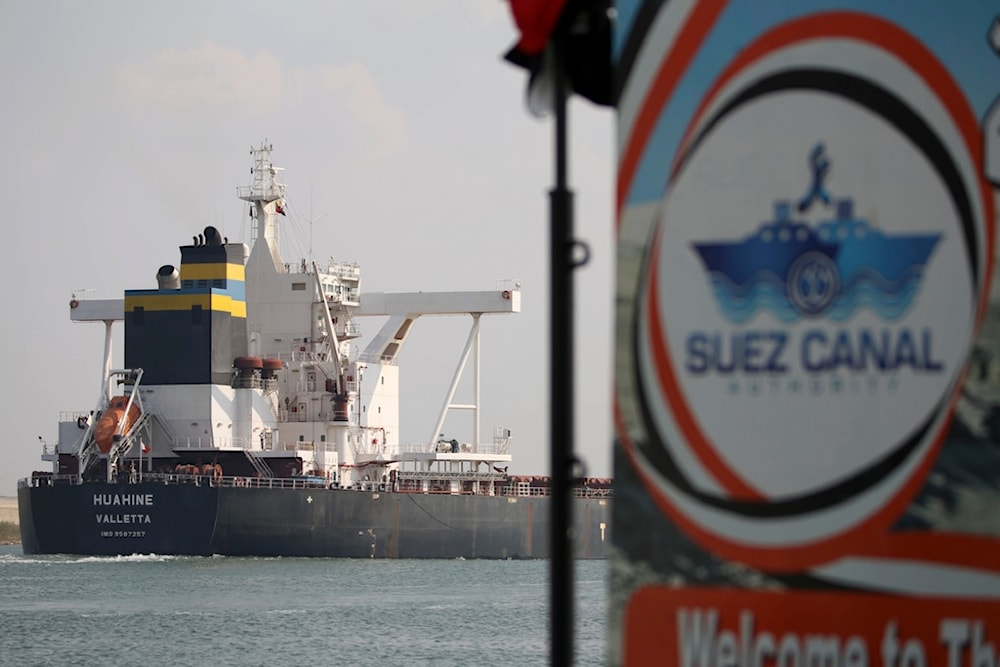100 vessels take longer route around Africa to avoid Red Sea tensions
Vessels carrying crude and petroleum are now taking the longer route around the Cape of Good Hope to avoid rising tension in the Red Sea.
-

A cargo ship sails through the town of Ismailia, Egypt, March 30, 2021 (AP)
The number of vessels rerouting to the Cape of Good Hope has increased to 100, compared to last week's 69, a report by Oil Brokerage revealed.
This constitutes a 45% increase since January 24. Reportedly, the vessels are collectively carrying almost 56 million barrels of crude and other petroleum commodities.
Consequently, shipments carrying clean oil products like diesel fuel, going through the Bab al-Mandab Strait, have fallen to 625,000 barrels a day, striking a significant decrease from the typical two million barrels a day.
The number of tankers diverting on longer voyages around the Cape of Good Hope, to avoid the chaos in the #RedSea, has increased to 100 from last week pic.twitter.com/RdJBf7w9U8
— Aimen Jamil (@jamil_aimen) January 30, 2024
Traffic increases in the Cape of Good Hope
On January 21, year-on-year shipping traffic in the Strait decreased by 59.2% according to projections by the International Monetary Fund and Oxford University, in collaboration with PortWatch.
Simultaneously, in the Suez Canal, ship traffic slowed by 44%, but increased by 55.5% in the Cape of Good Hope.
The Yemeni Armed Forces' defensive operations in the Red Sea have deterred shipping vessels, imposed lengthy reroutes, and hampered arrivals by 10 days to two weeks, accumulating shipping costs.
Yemen has repeatedly underlined that its actions are in defense of the Palestinian people and are aimed at exerting pressure on the Israeli occupation to allow the entry of aid into Gaza, declaring that it would only target Israeli-flagged ships or those bound for occupied Palestine.
This was the case until the United States and the United Kingdom decided to bombard Yemen for its stance with the Palestinian people, which made Sanaa change its decision and even ban US- and British-flagged ships from entering the Red Sea via Bab al-Mandab.
Following the US and UK's shift from an aggressive stance, known as Operation Prosperity Guardian, to launching airstrikes at Yemeni positions along the Yemeni coastline, Western navies issued advice for ships to maintain a safe distance. This recommendation was openly adhered to by the owners and operators of at least 2,300 merchant vessels, and certain insurers responded by imposing restrictions on coverage.
The result has been sharp declines in shipments through a waterway that would normally handle about 12% of global seaborne trade. Flows of oil, gas, grains, and manufactured goods have increasingly been diverted. Even a livestock carrier appeared to detour, raising animal welfare concerns.
The Suez Canal was the chosen route for ships for its position connecting Asia and Europe over a short distance, boosting the efficiency of costs and time, but shipping companies have opted to reroute and sail their vessels through the Cape of Good Hope, adding costs.
Read more: BHP reroutes Red Sea ships despite no threat

 3 Min Read
3 Min Read








